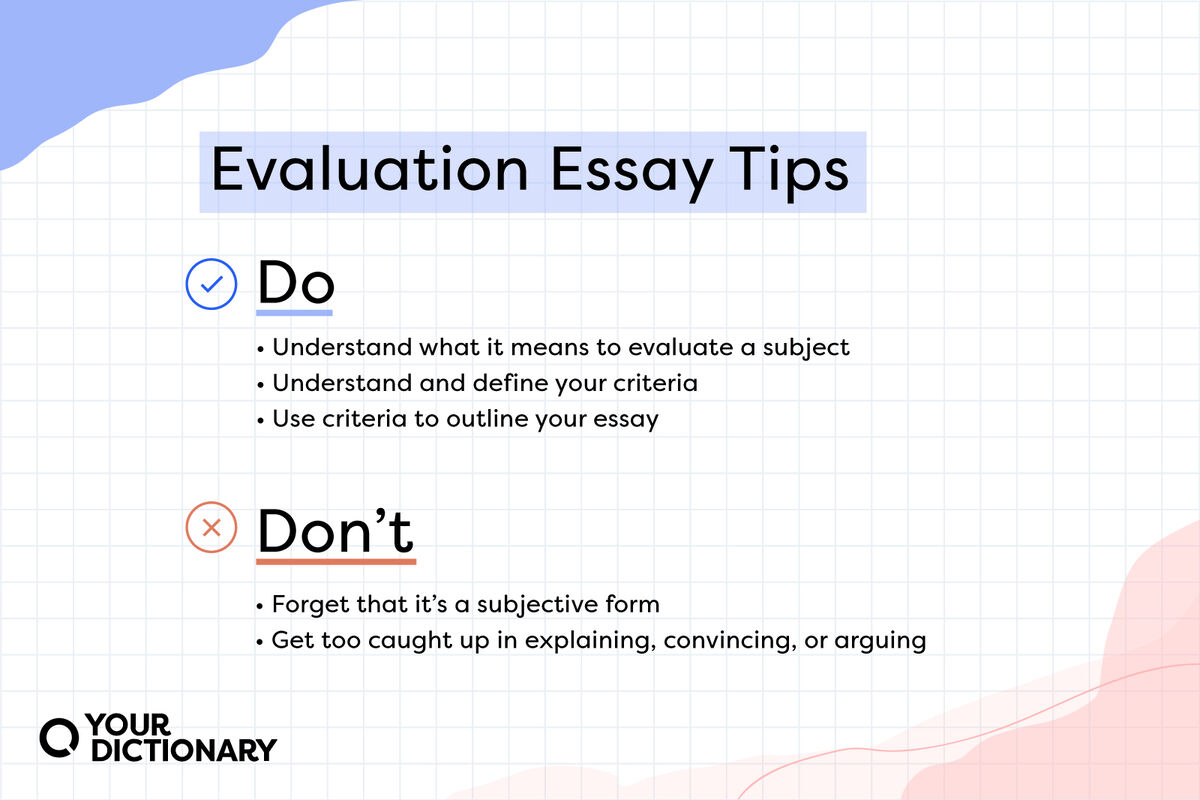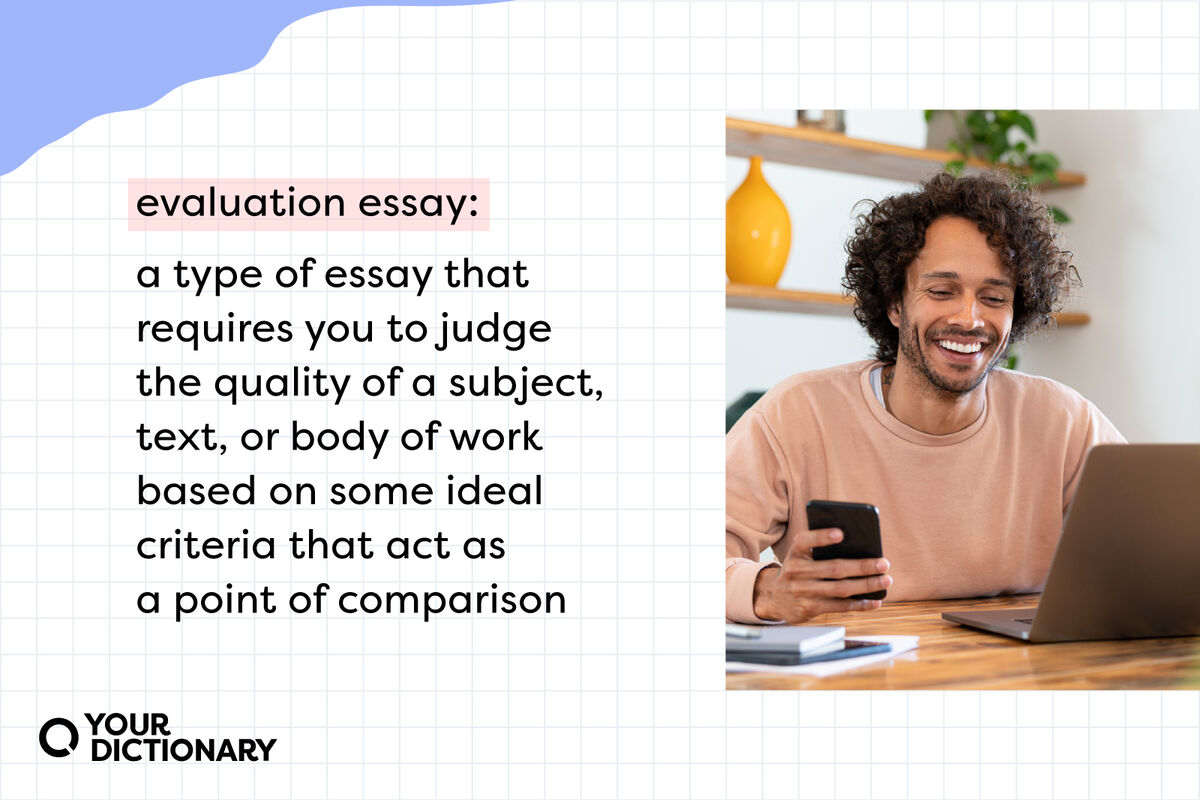
If you’ve watched a movie or TV show and thought, “This is good, but I didn’t like this part,” congrats, you’re not too far off from writing an amazing evaluation essay. Okay, it does admittedly take a little more than just that, but you have the general idea. How do you turn that idea into a cogent, incisive evaluation essay?
1. Understand What “Evaluation” Means
The operative word in evaluation essay is evaluation, but it’s easy to conflate that with other parts of other essays. Evaluation, analysis, argument — these all overlap and brush against each other in varying ways.
So what sets evaluation apart? Evaluation is specifically about judging the significance or quality of something and often whether you like (or didn’t like) something. That might naturally involve some analysis, but the center of an evaluation essay is about determining the quality of something or otherwise saying what was good or bad about the given subject.
For example, the self-evaluation essay is a common offshoot of the evaluation essay. This involves you looking back at, say, the past school year and determining how well you did in your classes, your general studies, your extracurriculars. You’re not going into an in-depth analysis of your own psyche or developing a critical theory about your French class.

2. Choose the Right Criteria for Your Evaluation
It can be easy to create a mental checklist of likes and dislikes that add up to your judgment of quality, but actually getting all of that down on paper can end up with something that is muddled or uninteresting. That’s where good criteria can help out.
What are criteria? They’re the rules or ideas that you’ll use to base your evaluation. For example, if you’re evaluating a shirt, you might use criteria like cost, materials, and personal fit to judge its quality. If you’re evaluating a dish of French fries, you might use taste, greasiness, and dippability as the criteria.
How do you choose the criteria? That’s really up to you and what you want to evaluate for a given subject. What interests you about the subject? Keep in mind that a good criterion should be measurable (like cost) or allow for comparison between subjects (like taste or dippability).
3. Use Your Specific Criteria To Structure Your Essay
Criteria allow you to organize your thoughts, but they’re also an easy way to structure the body of your essay. You can essentially make each body paragraph cover one criterion.
For example, if you’re outlining one of the body paragraphs for your French fry essay, it might look like:
- Dippability (criterion #1)
- Dippability as a reference to how easy it is to dip a fry into a chosen sauce, as well as the amount of sauce that can be picked up with a single dip
- May also go into the necessity of sauce
- The crinkle cut fry offers easy dippability compared to most other fries.
- However, the crinkle cut fry provides less sauce with each dip compared to a potato wedge
Start with a brief definition of the criterion so that the reader understands what you even mean by dippability. You can then go into your judgment of the subject given that criteria.
4. Start With a Review Mentality
Reviews have admittedly evolved over the years to include more personal narratives and analysis to make them more artistically critical, but the basic review of a movie or other piece of media still maintains the same tenets and structure as an evaluation essay. You might have enjoyed a movie for its great writing and acting, but the score and audio design may have been less than optimal.
If you’re having trouble starting your evaluation essay, approach it with that same sort of mentality. Don’t even worry about criteria or having a fully fleshed out idea just yet.
- What was your initial reaction to the subject?
- What did you like, hate, or feel ambivalent or questionable about?
- Why did you feel that way?
- Did you like certain parts of the subject but dislike other parts? How does that dissonance affect your opinion of the subject as a whole?
- Consider how the subject itself supports (or opposes) your opinion.
5. Remember That Evaluation Essays Are Subjective (And That’s Okay)
As much as you might want to maintain some level of objectivity, don’t get so caught up in trying to explain yourself that you lose sight of your own opinion. An evaluation essay asks you to at least try to explain why, but it’s also an essay form that understands its own subjectivity.
It’s totally fine to change your mind as you build out your evaluation, but you’re not trying to show that you’re right or even convince the reader to change their own views. Sometimes, you just love or dislike something in a way that can be hard to describe.
The fun and interest in an evaluation essay (and any sort of subjective piece) is reflecting on why you think the way that you think. What makes that movie so compelling to you? Why do you think that potato wedges are the superior form of French fry?